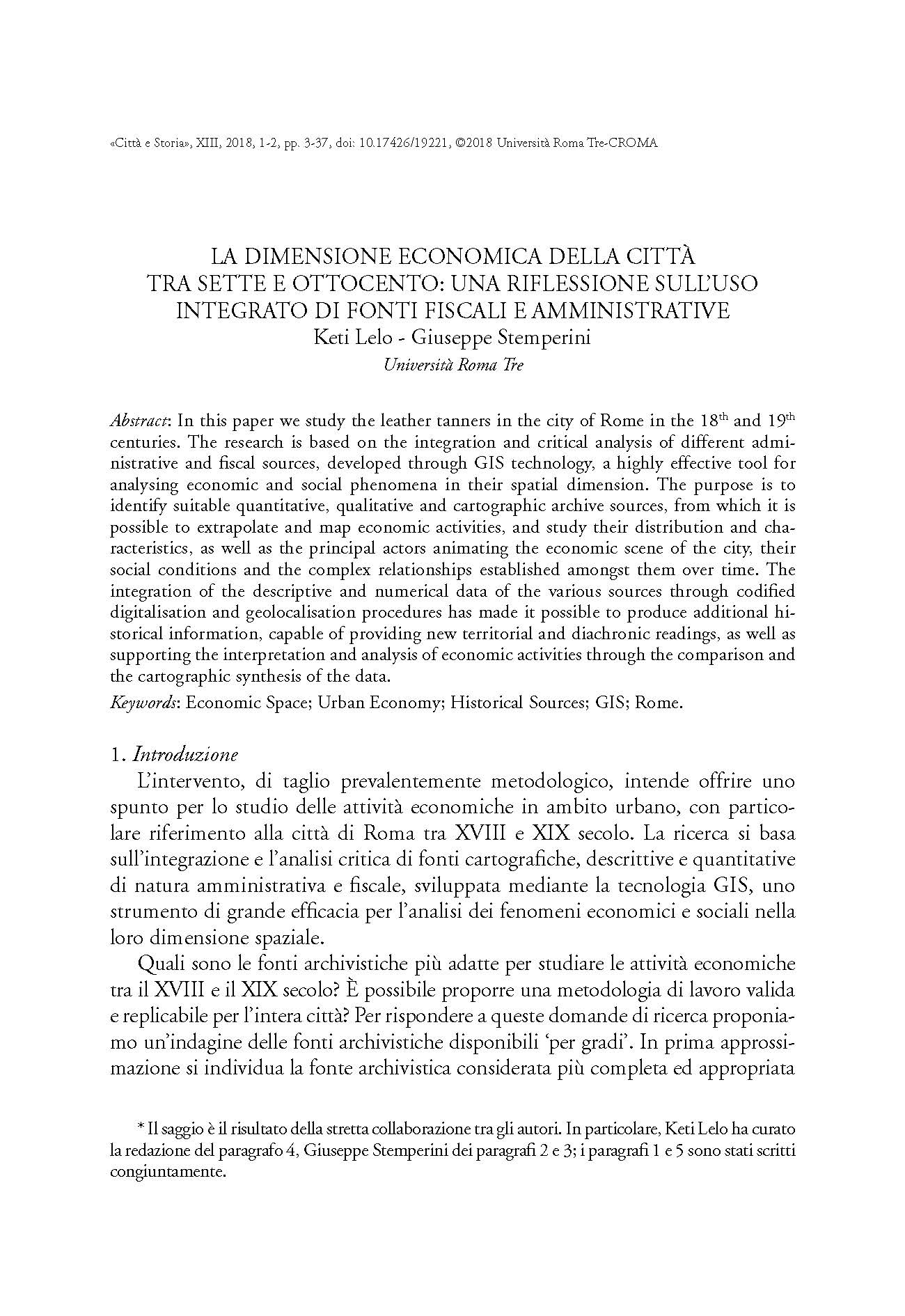La dimensione economica della città tra Sette e Ottocento: una riflessione sull’uso integrato di fonti fiscali e amministrative
6,00 €
In this paper we study the leather tanners in the city of Rome in the 18th and 19th centuries. The research is based on the integration and critical analysis of different administrative
and fiscal sources, developed through GIS technology, a highly effective tool for analysing economic and social phenomena in their spatial dimension. The purpose is to identify suitable quantitative, qualitative and cartographic archive sources, from which it is possible to extrapolate and map economic activities, and study their distribution and characteristics, as well as the principal actors animating the economic scene of the city, their
social conditions and the complex relationships established amongst them over time. The integration of the descriptive and numerical data of the various sources through codified
digitalisation and geolocalisation procedures has made it possible to produce additional historical information, capable of providing new territorial and diachronic readings, as well as
supporting the interpretation and analysis of economic activities through the comparison and the cartographic synthesis of the data.
In this paper we study the leather tanners in the city of Rome in the 18th and 19th centuries. The research is based on the integration and critical analysis of different administrative
and fiscal sources, developed through GIS technology, a highly effective tool for analysing economic and social phenomena in their spatial dimension. The purpose is to identify suitable quantitative, qualitative and cartographic archive sources, from which it is possible to extrapolate and map economic activities, and study their distribution and characteristics, as well as the principal actors animating the economic scene of the city, their
social conditions and the complex relationships established amongst them over time. The integration of the descriptive and numerical data of the various sources through codified
digitalisation and geolocalisation procedures has made it possible to produce additional historical information, capable of providing new territorial and diachronic readings, as well as
supporting the interpretation and analysis of economic activities through the comparison and the cartographic synthesis of the data.

